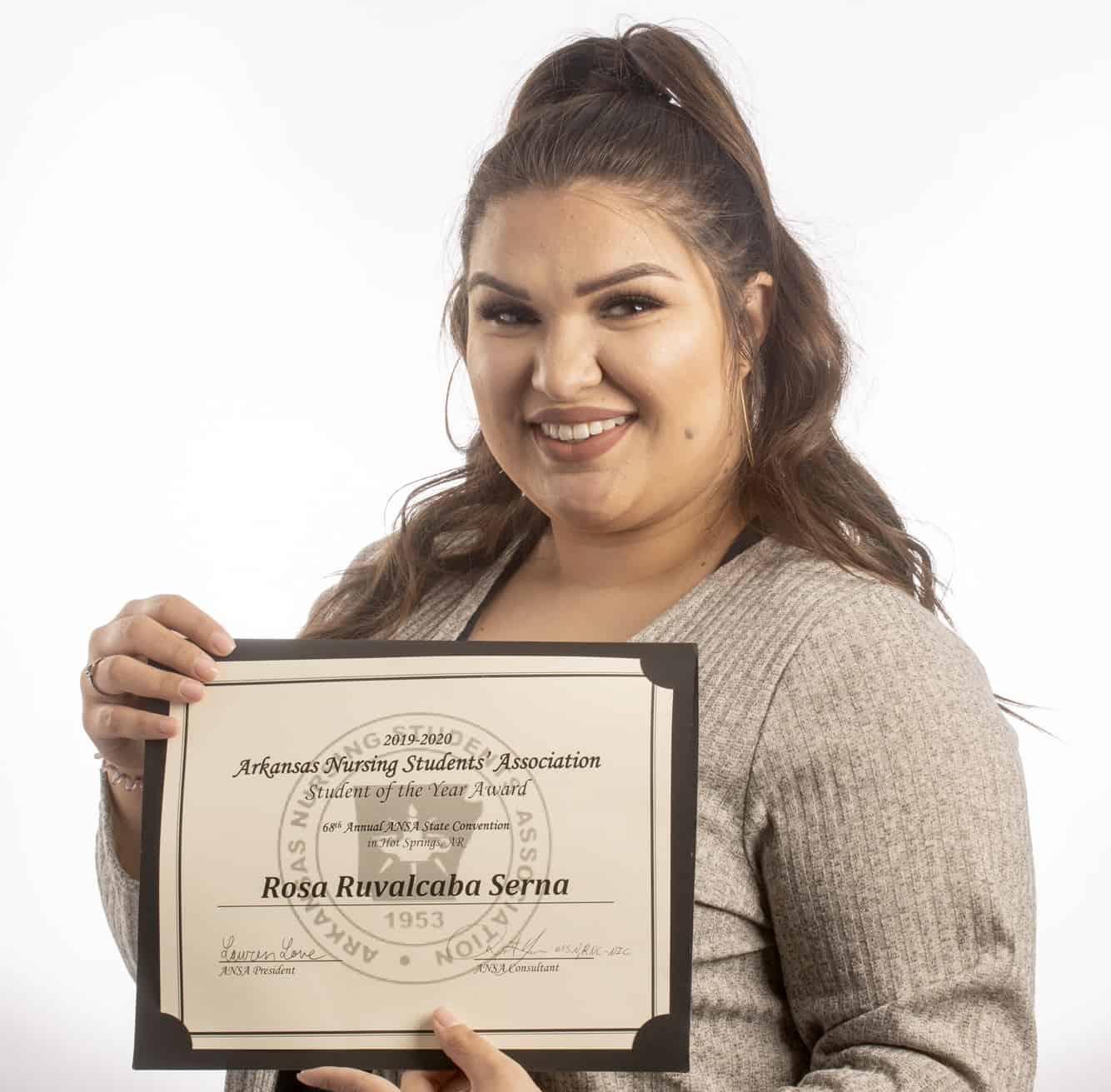View Larger Image

Rosa Ruvalcaba Serna
Senior Rosa Ruvalcaba Serna named Arkansas Nursing Student of the Year
| UAMS College of Nursing senior Rosa Ruvalcaba Serna has been named the Arkansas Nursing Students’ Association (ANSA) Student of the Year. The award was presented last month at the ANSA state convention.
“When Erin Salter, one of my classmates, told me I’d been selected, I started getting teary-eyed, because I was not expecting it,” said Serna.
Serna was nominated for the award by Nicole Ward, M.N.Sc., RN, APRN, an assistant professor in the college and had to submit an essay as part of the application process. In her essay, Serna noted the work she’s done as a student to bring awareness to – and ultimately change –regulations in Arkansas that prevented her from becoming licensed.
“Shortly after I started my nursing education, it was brought to my attention that because of my immigration status I would be ineligible to sit for a license in Arkansas and that my choices included California, Washington, and New York. I could have quit at that point. I still look back amazed that I didn’t. I chose to continue and wondered if there was a way that regulations could change,” she wrote.
She went on to serve on the ASNA Board of Directors in 2017-18 and began speaking up about the issue. Together, the board introduced and passed a resolution for the state at the national student convention advocating for change. They then successfully lobbied the Arkansas Legislature to take up the issue, and early this year legislators passed a bill amending Arkansas State Board of Nursing eligibility requirements to allow Deferred Action for Childhood Arrivals recipients to sit for the NCLEX for an Arkansas nursing license.
“It was never about individual recognition. When I started sharing my situation with my instructors and peers seeking guidance on how I could maybe help change the situation, it was more as a student who had sacrificed a lot to get to where I was. But it quickly became so much bigger than myself. By the time it got to legislation, I was doing it because I knew all the lives that were impacted and the people I was representing,” she said.
“I want to set an example for other Hispanics that we should and can have careers in medicine. I’ve already started to see a change in Arkansas. and I can’t help but smile and think I had a small part in that victory.”
Following graduation this semester, she plans to seek licensure as a medical translator.
“One of the many reasons I chose nursing as my future is because, while I was growing up my mother couldn’t speak English. Once I learned it, I found myself translating paperwork and interpreting for her during my own appointments,” she wrote. “The world of health care needs more diversity, more bilingual nurses. I want to be able to provide care, ease and comfort to those who might not feel that because of a language barrier.”
Serna said that, while her bachelor’s degree means the world to her as a first-generation graduate, she plans to pursue her doctoral degree in nursing and eventually become an advanced practitioner and potentially a nurse educator, though she never planned to be a teacher.
“If nursing school has taught me anything, it’s to go about things with an open mind and an open heart. I’m not sure what the future holds for me,” she said. “At this point, I just know that I have accomplished way more than I ever set out to do, and that’s only helped ignite an even greater passion for my career than I had before.
“Nursing is such a filling profession on so many levels. I have always wanted to have a career where I am making a difference, and nothing else seemed to fit for me other than nursing.”